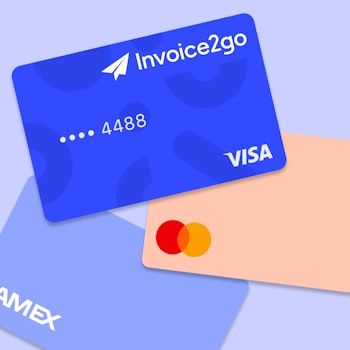
15 tax deductions all freelancers and small business owners should know about (2022)
With April around the corner, tax season is officially in full swing. Running your own business provides tons of freedom and flexibility, but let’s face it: managing taxes can be a pain!
Knowing what tax deductions are available to you saves you money and frustration – and since many of us have recently switched to working from home, there are a few items you might not even realize you can deduct.
What qualifies as a business expense?
What counts as a business expense varies on a case-by-case basis. For example, if you work from home and don’t interface with the public, you probably can’t write off your wardrobe or dry cleaning. But if your job depends on specific software, computers, or other tools, those are all deductible, as is a portion of your costs for housing, utilities, and internet.
The IRS leaves it up to you to decide what’s essential – in other words, there are no clear guidelines. However, if you choose to deduct things that are coasting the line, keep in mind that excessive amounts might send up a red flag and increase the potential for audits.
A good rule of thumb is to keep all receipts and invoices. Itemize them under categories, so it’s easy to add them up. If you’re already an Invoice2go, a Bill.com company, customer, we’ve got plenty of handy tools to help you stay on top of everything, from payments to purchasing.
Capture your receipt in the mobile app when you incur the expense, categorize it, and attach an image of the receipt. Your expenses are then viewable on your expense journal report and fully itemized when you’re ready to send to your tax professional.
What’s new this tax season?
Here are 4 small business tax regulation changes should know about that could impact the deduction amounts you can claim for 2021:
- You can’t claim as much in business loss deductions
If your losses exceeded your earnings in 2021, you can no longer claim the entire net loss as a deduction. If you’re single, you can claim a business loss deduction of only up to $262,000, and if you’re married and filing jointly, you can claim a business loss deduction of up to $524,000.
- You can’t claim as much in business interest deductions
The IRS has introduced new limits on deductions for interest on business loans. Your business interest expenses can account for only up to 30% of your taxable income for the 2021 tax year, down from 50% in 2020.
- You can claim more in business meals deductions
Business meals deductions increased from 50% to 100% in 2021 – but only for drinks purchased from restaurants, including takeout and delivery.
- You can’t claim as much in mileage deductions
If you use your vehicle for business, the deductible mileage rate fell from 57.5 cents per mile in 2020 to 56 cents per mile in 2021.

15 small business tax deductions you might not know about
We’ve left out a few of the more widely known deductions, such as medical and travel expenses. Instead, we’ve highlighted 15 common deductions you might not realize you could claim.
1. Business meals and entertainment
Client meals that you conduct for business purposes are partially deductible, usually up to about 50%. Office meals and snacks also qualify, so if you’re filling the fridge and stocking the coffee station for your employees, all of that counts.
Also, for meals where the taxpayer is present and as long as the food and drink provided are “not extravagant,” the 50% deduction applies to meals or events attended with a customer, client, consultant, or business contact.
There are a few “fine print” rules you might want to note as well. Specifically, if you attend an event with a business colleague or employee, the food and drink consumed at the event can’t be deducted if the charges are billed separately or stated on more than one bill or invoice.
2. Professional services
Any amounts you pay to an attorney or accountant related to your business are deductible, as are consultant services. For example, if you hired a management consultant to improve operational safety or brought on a marketing consultant to revamp your advertising campaigns, those all qualify, usually at 100% of the cost.
3. Freelance labor costs
Hiring freelancers is a great way to access highly skilled workers on an as-needed basis. All fees and costs you pay to freelancers fall under the same umbrella as independent contractors. If you pay any contractors or freelancers more than $600 in a calendar year, you must issue them a 1099-MISC.
4. Salaries, benefits, and commissions
Your employees’ salaries, benefits, and commissions are all part of your cost of doing business; therefore, they are deductible. Expenses under this category include contributions to HSPs, life insurance, profit-sharing, and pensions.
5. Charitable donations
Did you help out any charitable organizations in 2021? If the organization is accredited, your donation might qualify for a 100% small business tax deduction. Charitable donations are a great way to help others and reduce your tax burden.
6. Education and training
Any work-related education and training you paid for, whether for you or your employees, is tax-deductible. Expenses must be relevant to your industry or necessary to maintain compliance to qualify. New certifications are eligible, especially if they add value to your business. Some industries require periodic re-assessment or continuing education to maintain licenses, and all of these are eligible deductions.
If you are filing for the American Opportunity Tax Credit, you might be able to deduct up to $2500 per student. However, the training must be directly related to your business niche and come from an eligible school. You must have the educational institution’s EIN (employer ID number) to include on Form 8863.
7. Insurance
Business insurance varies, depending on the industry you’re in and what’s required for you to have in place. Premiums for insurance that are directly related to your business are deductible. Eligible types of insurance include:
- Professional liability insurance
- Business vehicle policies
- Malpractice insurance
- Casualty insurance
- Property insurance
- Employee theft insurance
- Business interruption insurance
- Key-person life insurance (for your directors/executives)
- Workers Compensation insurance
- Any insurance related to your home office space
- Your health insurance premiums if you are self-employed
If you are unsure what kinds of insurance premiums you can deduct, speak with your accountant or tax professional.
8. Moving expenses
If you’ve had to change locations or move out of your previous space, claim these expenses. Check with your accountant to see how much you might qualify for. The amount you deduct might be higher if the new location is more than 50 miles further away from your home.
9. Home office expenses
If your home is your principal place of business, you can write off $5 per square foot of dedicated business space — up to a maximum of 300 square feet – if you use the simplified method for calculating your home office deduction. You can also deduct the relative portion of your utility payments and homeowners insurance. For example, if you’re claiming the maximum of 300 square feet, you’ll need to figure out what portion of your utilities apply to that space.
10. Renovations
If you’ve made renovations to your home to accommodate business use, or if you’ve renovated parts of your home that are used exclusively for business, these are also tax-deductible.
11. Equipment rental, lease, or purchase
Any equipment you need to conduct business, including computers, machines, tools, and so on, can be deducted. If you rent or lease, these expenses are eligible with no depreciation in the year the expense was incurred. Software is fully deductible as well, including all subscription-based SaaS. New equipment purchases may be subject to a depreciation tax break, allowing you to deduct 100% of the cost.
To qualify, your business equipment must:
- Be used in the business
- Produce income
- Last more than one year
- Eventually wear out or lose value over time
Under this category, you cannot write off property, land, HVAC systems, or inventory.
12. Startup expenses
If you started a business in 2021, you could be eligible to deduct up to $5,000. The expenses must be related to activities that happened before you opened for business but can include the legal costs of establishing your company, marketing, and costs related to recruitment.
13. Office supplies
Whatever you need to operate your business from day to day that falls outside the equipment and software category can be grouped under office expenses. Any postal services, courier, delivery, etc., can also be deducted. Be sure to keep detailed records and receipts.
14. Interest, bank charges, and taxes on business expenses
Fees you pay to your bank for your business accounts are tax-deductible, as is the sales tax you pay on business expenses. This category also includes annual credit card fees and the interest you pay on business purchases, loans, and credit lines associated with your company.
15. Losses
Business loss comes in many forms. Loss could result from theft or vandalism, and it could also occur because of extreme weather, natural disaster, or bad debt. In the case of insurable loss from a disaster, like a hurricane, severe storm, flood, or fire, you might be able to deduct the portion your insurance company didn’t cover.
If some of your customers defaulted on their invoices, you can deduct the unpaid amount in certain circumstances. Essentially, you’ll need to prove that the amount is indeed a “bad debt” and not just an overdue invoice. Talk to your accountant about what might or might not be eligible.
Final thoughts
With tax season looming, it might seem like the tribulations of 2021 are far from over. However, with a keen eye and sound advice from a qualified tax professional, you can make it work and get all the small business tax deductions you qualify for.
Organization and planning are critical to small business success. Whether you work solo or manage a team of your own, Invoice2go, a Bill.com company, is here to help you grow. Give our freelancer invoicing software a try to make invoicing easier.
Related Articles

How to accept credit card payments on Invoice2go in 3 simple steps

Accept payments online via Apple Pay and Google Pay

Must-not-miss write-offs as you wrap up 2022 year-end finances

5 ways accepting credit and debit card payments helps your business stay resilient

4 easy ways to increase cash flow today

What is Small Business Saturday and why is it important?
The features and surprising benefits of a well-designed packing slip
